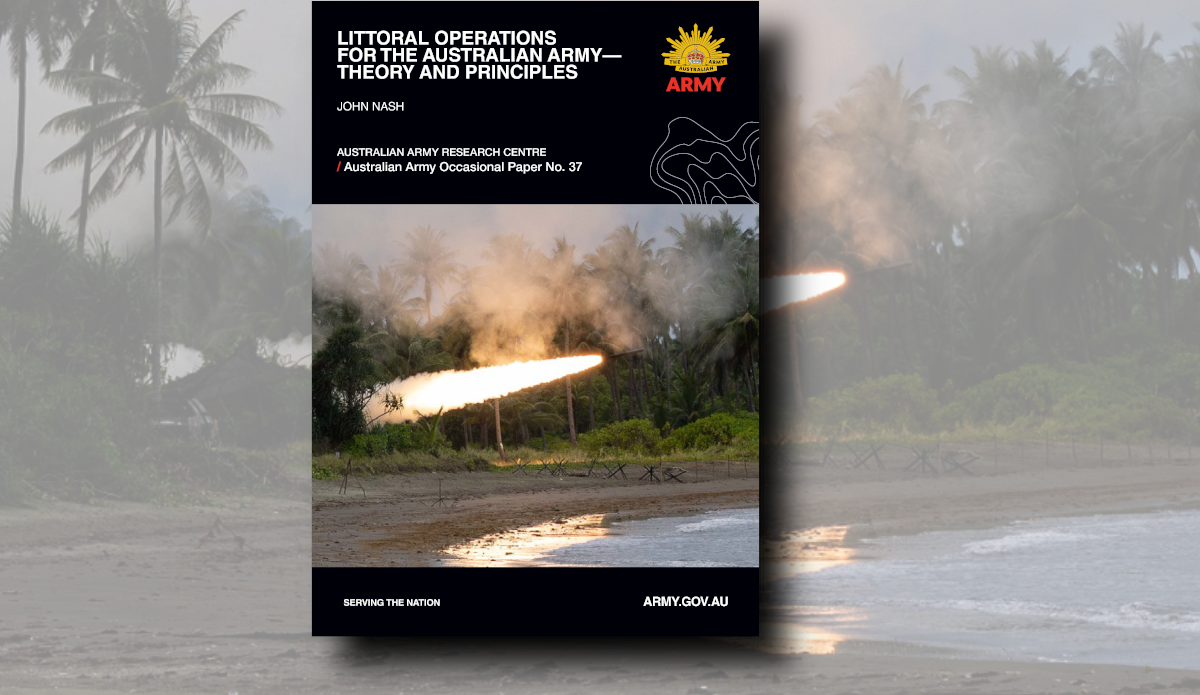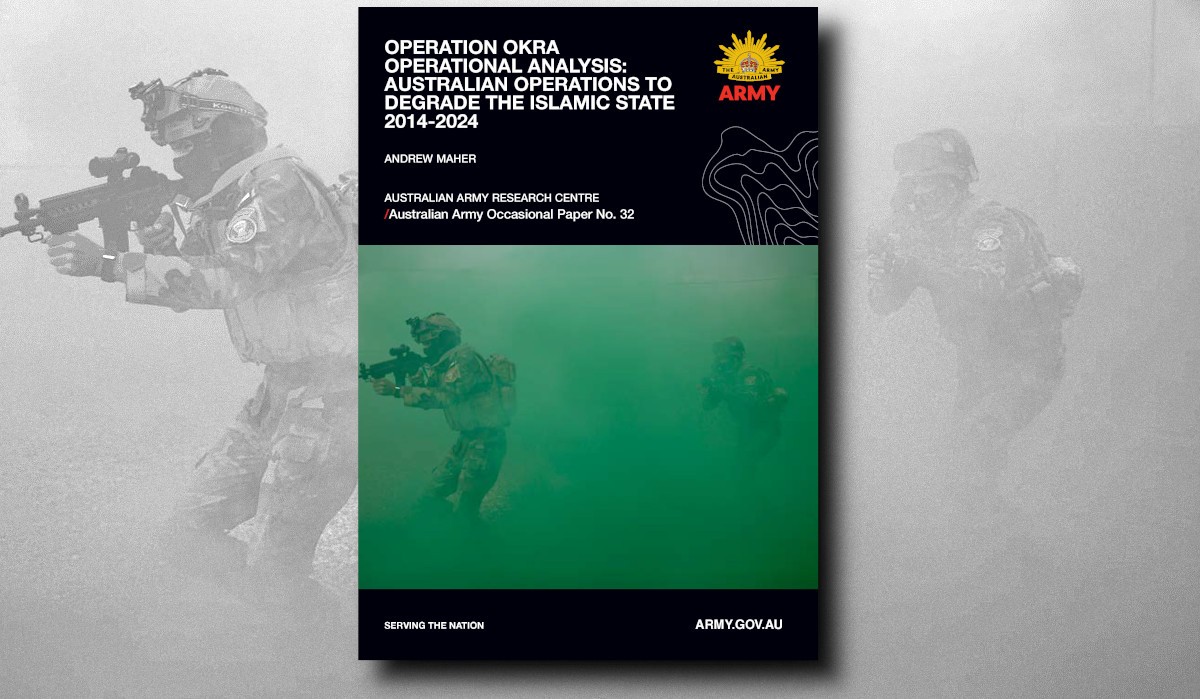Most of us have a fair idea on the definition of organisational culture. It shapes institutional behaviour, motivations, philosophies, expectations and ambitions. Put simply, organisational culture determines ‘what, how and why things are done, [and will be done,]’ within an enterprise. Arguably, to comprehend an organisation, particularly one with which you wish to partner, you must understand its culture. Accordingly, this second blog in a series on the French Army, the armée de Terre, will offer an outsider’s perspective on its organisational culture. In doing so, it will review the Australian Army’s culture, that of the armée de Terre’s, and conclude with observations relevant to the increasingly important Army-to-armée partnership. The author currently serves as Army’s Liasion Officer in France.
It would be an interesting and perhaps useful exercise to poll those in your workplace about the Australian Army’s organisational culture. I suspect some would conflate it with Army’s values – and possibly the phenomena of national culture. A few might recount Army folklore, rituals, symbols or ingrained ideals. A number may mention the Chief of Army’s ‘people, preparedness, profession, potential and partnerships’ focus, or his ‘Good Soldiering’ initiative. Still others may refer to recent Army/Defence cultural reforms. A handful may well be stuck for an answer. The remainder could point to the definition provided by Army’s capstone doctrine, LWD 1, The Fundamentals of Land Power.
LWD 1 defines the Australian Army’s organisational culture according to six elements. These attributes shape the behaviour, motivations, philosophies, expectation and ambitions of Army’s people, on and off the battlefield. First, it is expeditionary. Second, it seeks coalitions, or strong partnerships, with like-minded allies. Third, it prioritises leading individual and collective training above all other inputs to combat capability. Fourth, it embraces austerity – fostering robustness and resilience. Next, it pursues small team, or tactical, excellence – combined-arms, joint, inter-government and coalition. Finally, Army’s foremost doctrine notes the Australian Army is practical and pragmatic.
LWD 1 substantiates each element via historical example. Moreover, it explains it likely that Army’s cultural attributes are ‘common to most western armies,’ that they ‘must not be viewed as monolithic,’ and above all, they must be understood – within and without. After all, self-awareness ‘is the beginning of all wisdom.’[1]
It could also be said that knowing an ally’s organisational culture is fundamental to a more productive partnership. By reflecting on the French Army’s extensive historical record and contemporary practice, one may describe its culture according to six distinctive elements.
First, like its Australian counterpart, the French Army is expeditionary. France’s extensive colonial conquests, continental dominance at the zenith of Napoleon’s ‘Grand Empire,’ and its enduring global footprint, including in Australia’s near region, support this assertion. Significant contemporary deployments, a demonstrable ‘readiness’ ethos - reinforced via the recent ‘hardening’ of its primary contingency force - and logic for material requirements, such as the rapid deployability and sustainability of its armoured vehicles, all underpinned by an ‘adventurist’ ideal, provide further evidence of its expeditionary mindset.
Second, the armée de Terre seeks unquestionable competence. ‘Never again’ was the anguished cry of the French nation emerging from the devastation and humiliation of the War of 1870, the Great War and World War 2. ‘Never again’ would their land force be found wanting when their nation’s sovereignty, or even its prestige, was at stake. Accordingly, humbly and soberly learning from past misadventures and calamities, the French Army resolutely pursues irrefutable competence: an unequivocal proficiency that will afford them a competitive edge over potential adversaries as well as ‘benchmark’ status amongst their most esteemed allies – inclusive of Australia.
Third, the French Army prioritises leadership. For those privileged to sit inside the armée de Terre’s tent, one can often hear frank reflections on past leadership – both ill-fated and lionised. Such reflection is a testament to the French Army’s humility; a quality intrinsic to self-awareness, self-learning and, ultimately, effective leadership. For well over a century, the French Army have considered bold (l’audace), coherent and accountable leadership, at all levels, but particularly at the ‘pointy end,’ the essence of their ‘warfighting’ capability. Unsurprisingly, it receives much attention during its individual and collective training.
Closely following leadership is the French Army’s emphasis on realistic and challenging training, both individual and collective. Pursuit of demanding combined-arms and joint ‘warfighting’ training is a tenet of the French Army’s organisational culture. While amongst the most advanced armies on earth, the armée de Terre does not obsess over technology at the expense of training. This cultural characteristic received a recent boost with the new French Chief committing to reinforce the armée de Terre’s ‘warfighting’ training as well as the establishment of its ‘combined-arms’ training Division.
The fifth element is the French Army’s resilience. The bleached bones of its legions strewn across far-flung, hostile frontiers exemplify this cultural distinction. Its unyielding resistance throughout that longest and most savage of history’s battles, Verdun, provides another example. Repudiation of logistic luxury in the unforgiving Sahel offers a contemporary illustration of this trait, as does the armée de Terre’s enduring esprit of service to the nation above all comforts and entitlements – even at home. Resilience intimates the admirable Gallic virtues of the nobility of military service. As a cultural element, it is prized, considered crucial to the discipline that will enable the French Army prevail when all else fails. Since 2018, the French Army has sought to reinforce its resilience via its esprit guerrier (‘warfighting ethos’) initiative. More recently, its new Chief has declared his intent to steel the French Army for future high-intensity conflict. On a more enduring basis, and in an increasingly competitive employment market, the armée de Terre seeks to balance its recruiting pitch to attract those who may well be motivated by fragile ‘self-interest’ with its paradoxical cultural virtue of resilient ‘duty first.’
The armée de Terre’s sixth cultural characteristic is pragmatism. Borne of hard-won experience, it encourages self-awareness, decisive leadership, responsible risk taking, the will to find a way and an intolerance of excuse making (and makers). Its ambition to be the benchmark land force in Europe, and the second in the ‘free world,’ necessitate an enduring pragmatic approach to fulfilling its fundamental functions: fight wars; or prepare to fight them.
While most of us could define organisational culture, less could adequately describe our own. Perhaps fewer again could characterise the cultures of our increasingly important military partners – even if we have a reasonable understanding of their structures and arsenals. Yet, understanding our own organisational culture, and those of our close, increasingly important military partners, such as the French Army, is essential – and profoundly more important than rote learning their tangible attributes. If self-awareness is ‘the beginning of all wisdom,’ comprehending an ally’s culture, ‘what, how and why they do what they do [and will do],’ can only promote more productive partnerships.
[1] Quote ‘knowing yourself is the beginning of all wisdom’ attributed to Aristotle.




